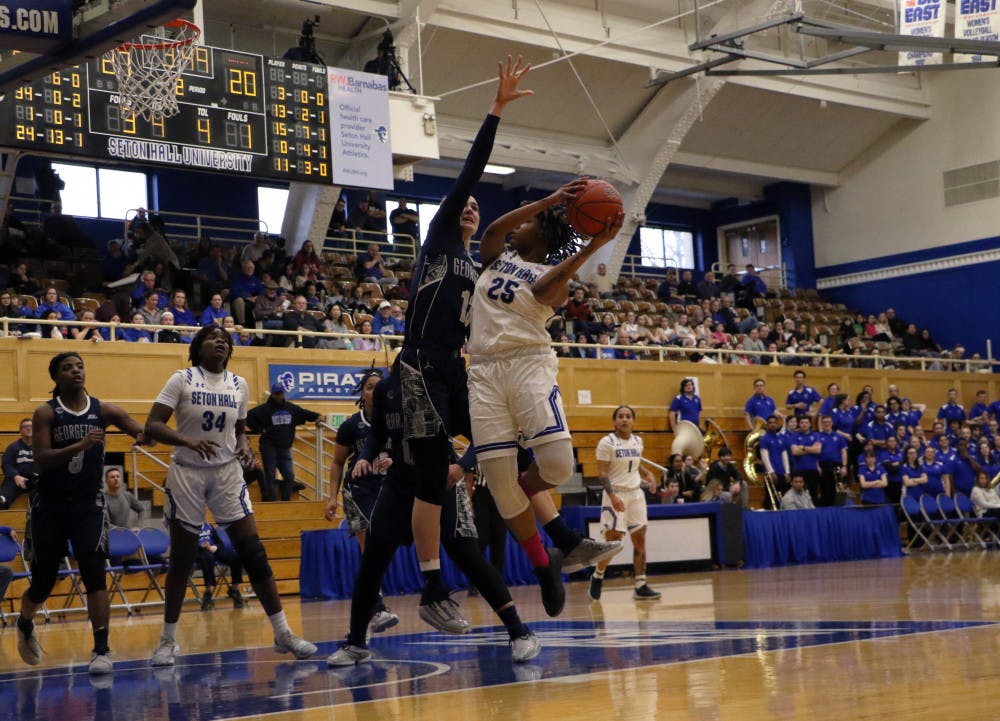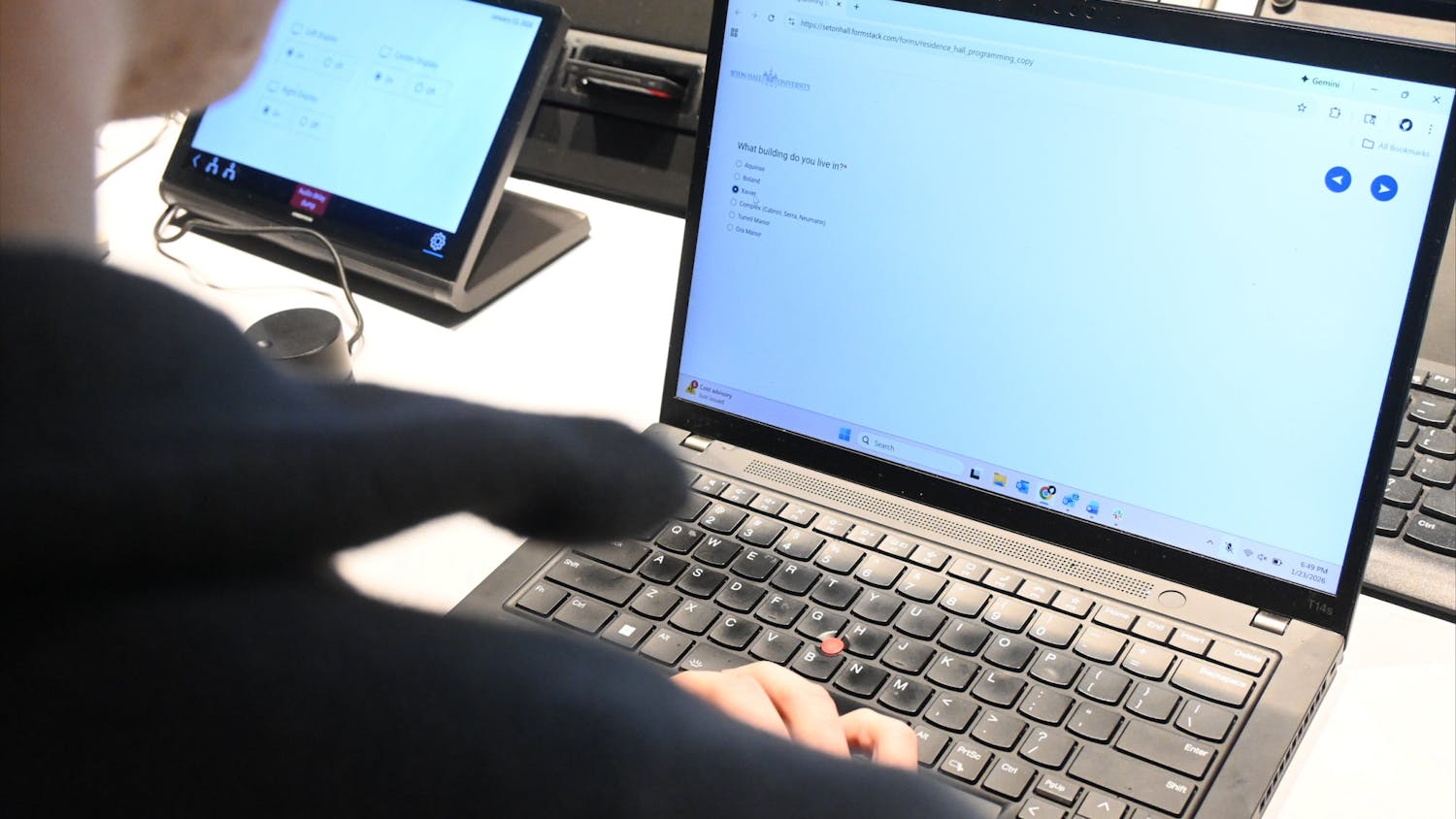Research conducted earlier this year for the University revealed that Seton Hall’s students have more say in their academic fate than just avoiding the seal in the middle of campus en-route to class---and the answer can be found as early as the first day of freshman year.
According to the data, almost three quarters of students who get an “A” in their University Life class go on to receive a diploma from the University, and less than one third of students who earn a “C” go on to graduate. An outside company called the Student Success Collaborative was responsible for a statistical analysis for student academic performance, according to Andrew Brereton, director of projects and planning for student services. The findings focused on a correlation between University Life, a required one-credit course for all freshmen, grades and graduation rates. This is based on data that has been collected for six to eight years, and tracking altogether over 5,000 students, Brereton said.
The study utilized predictive analytics, an investigative method described by Brereton as a process similar to a search on Amazon.
“Everyone is familiar with predictive analytics if they’re a customer of Amazon, right?” Brereton said. “When you sign into Amazon, if you have an account it’ll, say hey, here are some books you might be interested in or movies you might be interested in, and how do they come up with those predictions?”
Predictive analytics, that’s how.
Brereton explained, “The Student Success Collaborative took a look at the academic performance of thousands of Seton Hall students, and they looked at how students have been doing over the past several years, and then based on how a student does on a particular course or group of courses today they can say well, ‘this student is doing really well and they seem to be on track for graduation.’”
Other major-specific courses revealed similar findings; if a student earns a lower grade in a course they may be at risk for not completing their program, Brereton said.
“I don’t want a student to read this and say, ‘Oh God I got a C in U-Life I’m not going to graduate. It doesn’t mean that, but it means ‘risk,’” he said. “It’s not the grade, it’s not like you have a scarlet letter on you; it’s the behavior that got you the grade that is the issue.”
There are many risk factors in a student’s overall academic success rate. Whether it is health problems or personal issues, when ignored, Brereton said, students tend to go down the path of the statistical norm.
“I think the correlation between University Life and graduation exists because U-Life is the course that helps students learn the ‘how to’ to navigate college,” said Robin Cunningham, associate vice president of freshman studies. “Many first-year students underestimate the academic and social differences between high school and college. The U-Life course brings those differences to light.”
Cunningham explained that in general, academic habits displayed in the U-Life course by students exemplify their likely overall work ethic in other courses.
“If they have an ambitious approach to their participation and engagement in U-Life, it is likely that is spilling over into their other classes,” she said.
This is why it is important to present this information to students early on. It increases awareness of students who might be struggling and creates an initial dialogue between mentors and students, Cunningham said.
Ashley Gahm, a freshmen currently enrolled in the course, explained how seeing the statistics altered her initial perspective on the class.
“They made me realize that maybe the class will actually help me. At first I thought the class was pointless,” she said.
Michelle Colombo, freshmen, experienced a similar reassurance when presented with the statistics in class.
“Seeing these statistics made me excited to further my education at Seton Hall and I know I will do well because of everything that I am learning in all of my classes,” she said.
“I think this class matters because it is a time where you and your small group come together each week basically just to talk about life with your mentor and PA (peer advisor)… It serves as a comfort zone because it is my only class that is never stressful,” she said.
“The key here is, and the thing that students should really take away is that your early performance is very important for laying a solid foundation,” Brereton said. “It gets more demanding not less demanding, and that’s particularly true for any of the STEM majors. So any student who wants to be a nurse, or a doctor or a physician assistant or an engineer or a chemist, they really have to apply themselves early on, get a solid foundation in their basic sciences, their math courses so that when they move forward they’ll be well prepared to succeed in more difficult coursework.”
Mary Marshall can be reached at mary.marshall@student.shu.edu.





